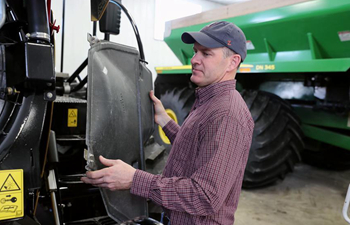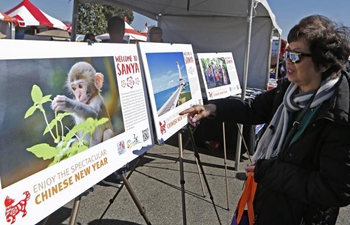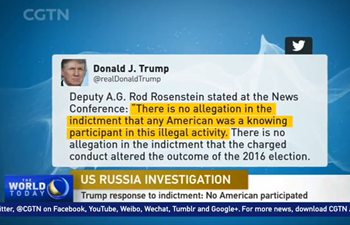MEXICO CITY, Feb. 26 (Xinhua) -- A leading Mexican business association on Monday highlighted the complexity of rules of origin in the automotive sector, an issue that has slowed negotiations to update the North American Free Trade Agreement (NAFTA).
The rules stipulate what percentage of a vehicle should be regionally manufactured. The U.S. has proposed raising it to a minimum of 85 percent for automobiles, with at least 50 percent containing solely U.S.-made parts. Mexico and Canada want the rate to remain at 62.5 percent.
"In all three countries, automotive industries of Asian, European and U.S. origin participate in their value chains. That's where the difficulty lies," the president of the Business Coordinating Council (CCE), Juan Pablo Castanon, told reporters at a press conference in Mexico City, which this week is hosting the seventh round of negotiations.
"It's not easy to move the rules of origin, because it signifies (altering) a value chain and an already established infrastructure," said Castanon.
At the same time, automakers are dealing with "new challenges" posed by "industry 4.0 to incorporate new technologies into automotive manufacturing," said the business leader.
Other issues that have eluded consensus include proposed changes to the chapter on dispute settlement, and the inclusion of a so-called sunset clause that would subject NAFTA to review every five years.
However, this round could see the NAFTA partners finalize chapters on telecommunications, labor and phytosanitary rules, among others, said Castanon.













